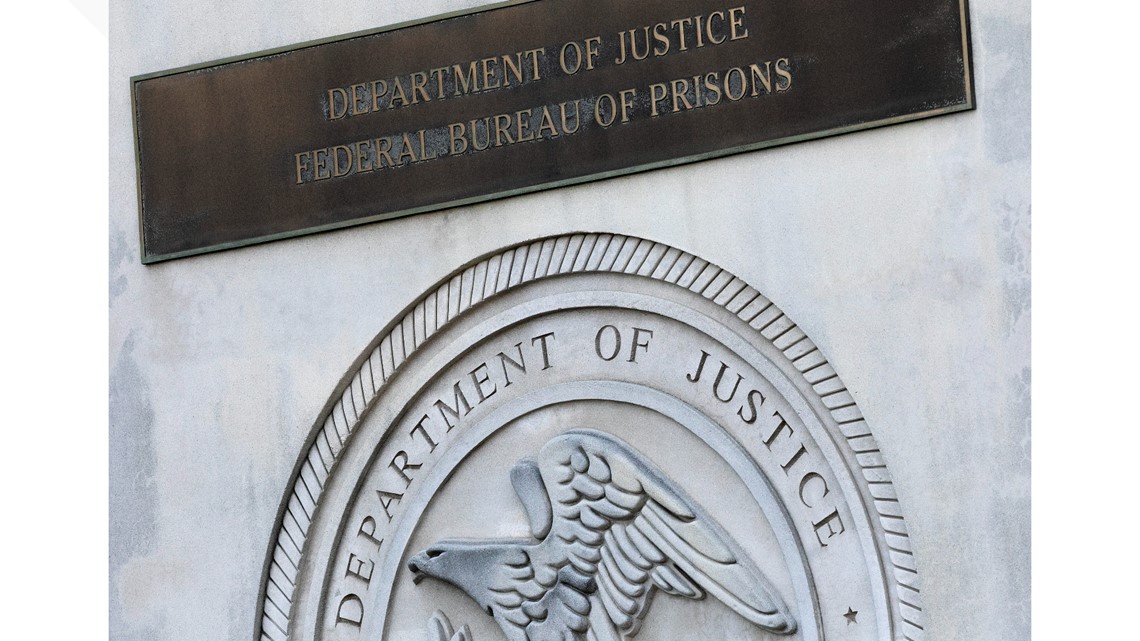WASHINGTON — Colette Peters, the director of Oregon’s prison system, has now emerged as the leading contender to run the federal prison system, a person familiar with the matter told The Associated Press on Wednesday.
Peters, who has run the state’s corrections department since 2012, is at the top of the list of candidates to replace Bureau of Prisons Director Michael Carvajal, who submitted his resignation in January but said he would stay on until a successor was named, the person said.
She would be the 11th person to lead the Bureau of Prisons since its founding more than 90 years ago, and only the second director with no prior experience at the agency, the Justice Department’s largest. While many officials from inside the Bureau of Prisons applied for the post, the Biden administration was looking for someone who was focused on reforming an agency that has had cultural issues for decades.
Deputy Attorney General Lisa Monaco has been leading the search for Carvajal’s replacement. The leadership change comes in the wake of AP reporting that has uncovered widespread problems at the agency, including sexual abuse by correctional officers and critically low staffing levels that have hampered responses to emergencies.
The person was not authorized to discuss details of the job search and spoke to the AP on condition of anonymity.
Peters did not immediately respond to an email seeking comment. The development was first reported by the Oregon Capital Chronicle.
As director of Oregon’s prison system, Peters is responsible for about 4,700 employees in an agency with a $2 billion budget. There are about 14,700 inmates in the state’s 14 prisons. The state corrections department has also touted her role in the state’s efforts to reduce the prison population and reduce recidivism.
Peters has a master’s degree in criminal justice from the University of Colorado in Denver and a bachelor’s degree in psychology.
Oregon’s prison system, like many in the U.S., had a wave of COVID-19 cases and deaths, and Peters’ agency has been criticized for not doing enough to respond to the pandemic behind bars. In Oregon, 46 people in the Department of Corrections’ custody have so far died after testing positive for COVID-19, and more than 5,400 people have tested positive for the virus while in custody.
In 2020, Peters publicly apologized for an inmate's death as the state prison system agreed to pay a record $2.75 million to the family of the man who died from the flu. The settlement came nine months after Michael Barton's family filed a $15 million wrongful death lawsuit accusing prison staff of failing to treat the 54-year-old man for the flu and then covering up his flu-related death.
The Bureau of Prisons similarly faced criticism over the explosion of COVID-19 in the nation’s 122 federal prisons. Carvajal, 54, was appointed director of the federal Bureau of Prisons in February 2020 by then-Attorney General William Barr, just before the COVID-19 pandemic began raging in federal prisons nationwide, leaving tens of thousands of inmates infected with the virus and resulting in 295 deaths.


An agency insider who started as a correctional officer and worked his way up the ranks, Carvajal’s tumultuous tenure as director included a failed response to the pandemic, widespread criminal activity among employees, inmate deaths and dozens of escapes.
Carvajal also oversaw an unprecedented run of federal executions in the waning months of the Trump presidency that were so poorly managed they became virus superspreader events.
The AP’s reporting exposing those problems compelled Congress to investigate and prompted increased calls from lawmakers for Carvajal to resign or be fired by Attorney General Merrick Garland.
The chairman of the Senate Judiciary Committee, Sen. Dick Durbin, D-Ill., said Carvajal “failed to address the mounting crises in our nation’s federal prison system, including failing to fully implement the landmark First Step Act,” a bipartisan criminal justice measure passed during the Trump administration that was meant to improve prison programs and reduce sentencing disparities.
Biden administration officials had discussions about whether to remove Carvajal in spring 2021, after the AP reported that widespread correctional officer vacancies were forcing prisons to expand the use of cooks, teachers, nurses and other workers to guard inmates.
The Bureau of Prisons is the only Justice Department agency whose director isn’t subject to Senate confirmation. Currently, the attorney general can just appoint someone to the position.
A bill introduced in Congress days after Carvajal’s resignation would require Senate confirmation for future bureau directors — putting them under the same level of scrutiny as leaders of the FBI and other federal agencies — but, so far, the measure hasn’t come up for a vote.
Others being considered for the job included Gary Mohr, the former director of Ohio’s prison system. While many had pushed Mohr for the position, he never formally applied for the job and is no longer in the running.



